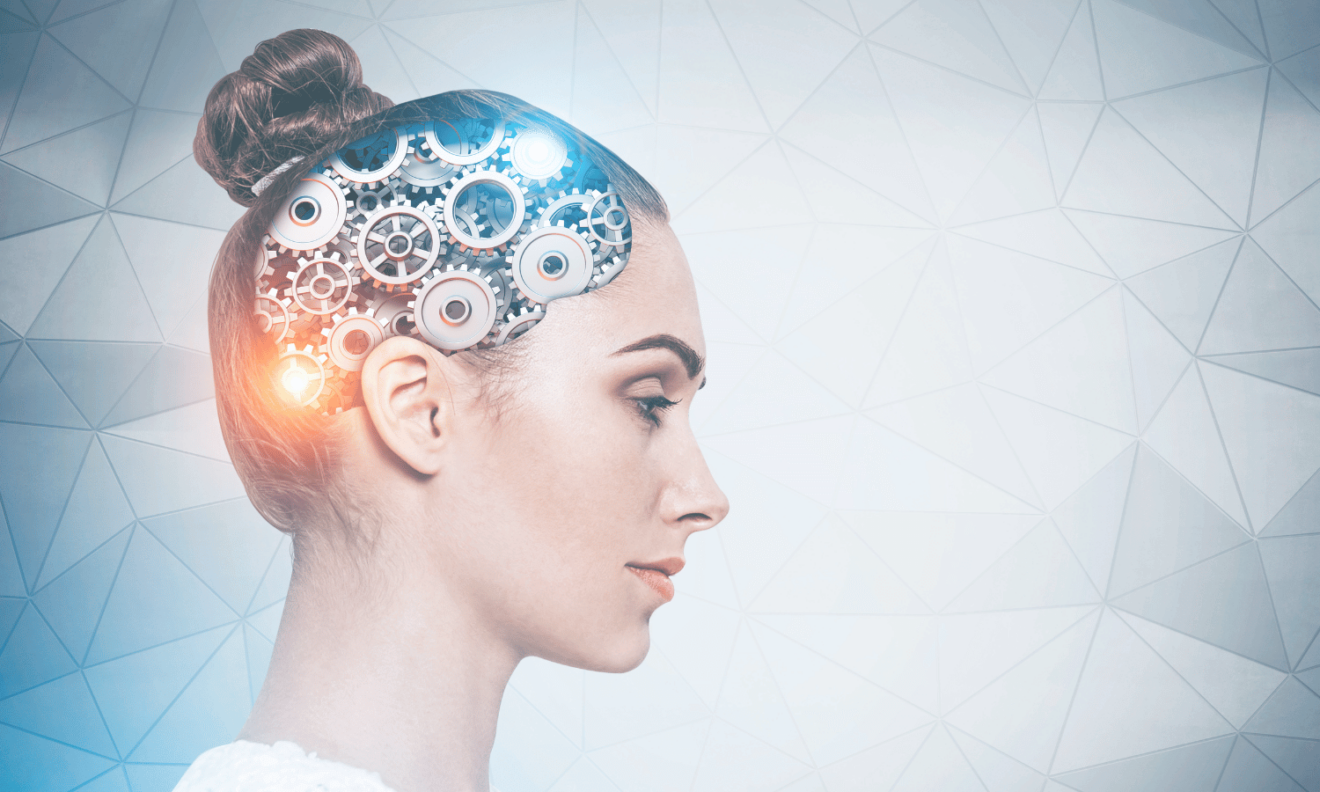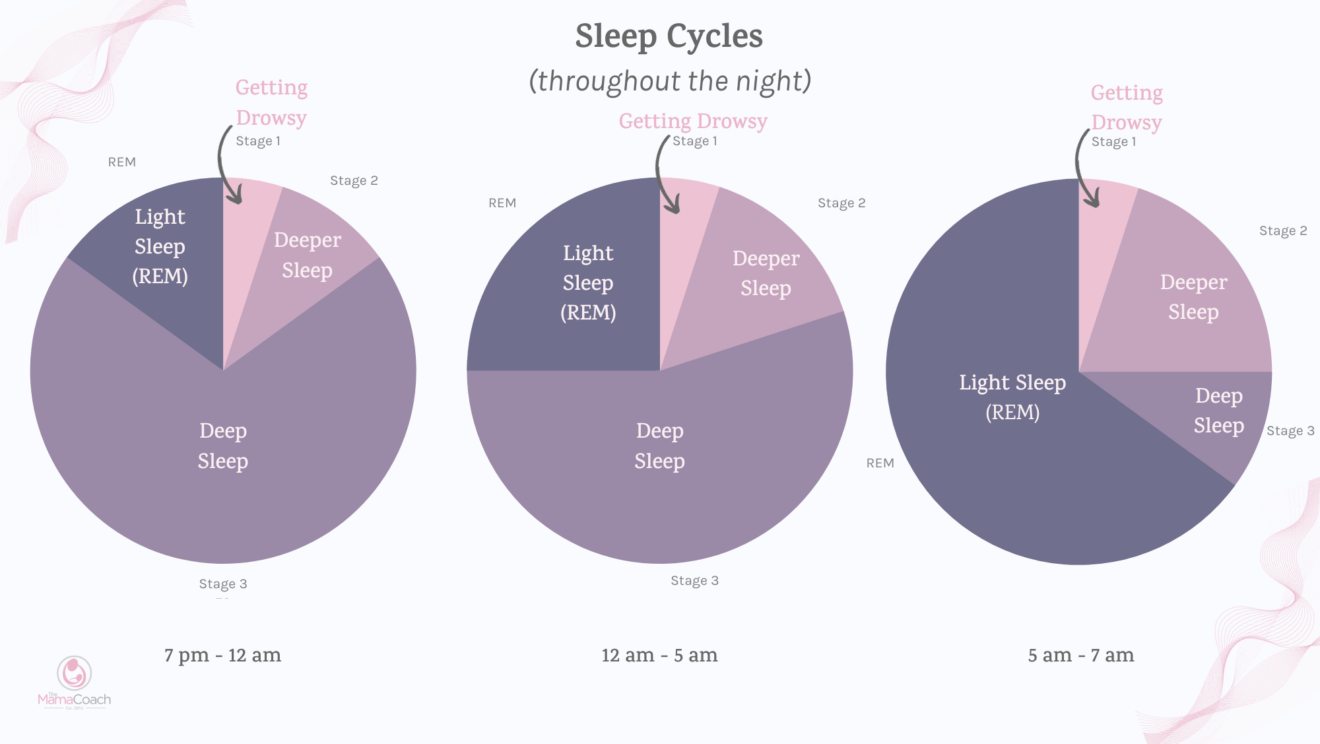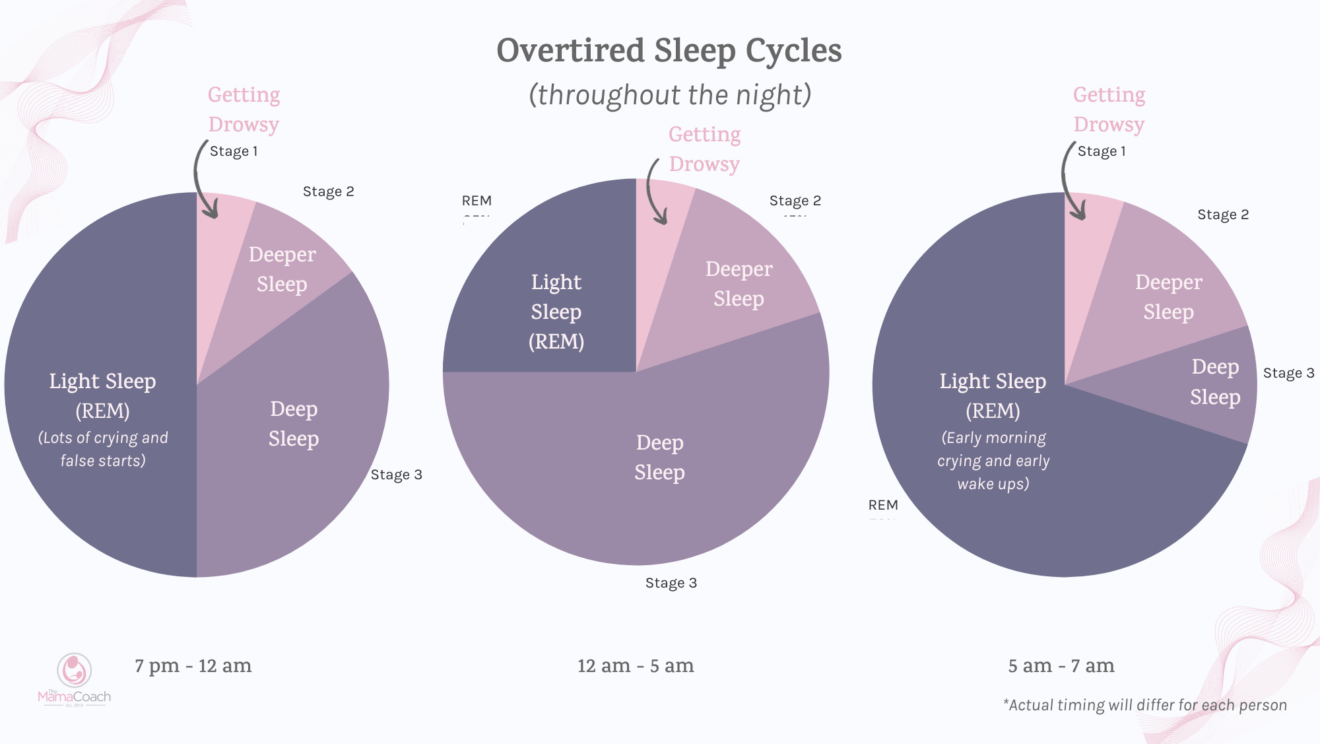Sleep Science and Mom Brain Explained
At some point in your parenting journey, you have likely experienced “mom brain”. You know the word you are looking for and feel so overwhelmed when you can’t place it in your brain. You may be forgetting full conversations you’ve had with friends, or forgotten to pick up items that you knew you needed to get for days. You come home from the grocery store and of course, didn’t even get what you went there for in the first place. Maybe you even forgot to add flour to the cookie batter (true story)!
I am sure you find this stressful, and may wonder if you are losing your mind or if is there (please) something more to this? Good news, Mamas. You already know you are NOT alone, but did you know that the reason for these very annoying and very real post-baby memory lapses is based on the science of sleep? That’s right! It’s no secret that new moms (let’s say, moms in general) can be big-time lacking in a good, solid night’s sleep. What many people may not know is that our memory consolidation and information processing take place in Stage 2 of Non-REM Sleep!

The Sleep Stages Explained
Non-REM Sleep Stage 1
Let me explain sleep stages to you in a nutshell. After we transition from newborn sleep, active and quiet sleep, which transitions around 12-16 weeks (coining the dreaded 4-month sleep regression!), we move into a cycle with REM sleep and non-REM sleep. In non-REM sleep, there are 3 stages. We cycle through all the sleep stages (including REM sleep) 4-5 times throughout the night. One full cycle for adults lasts between 90-120 minutes.
The first stage of non-REM sleep occurs when you are in bed, lights are out and you start feeling drowsy and your brainwaves start to slow. This is the period between awake and asleep, and usually lasts less than ten minutes. Essentially, this is the period when you are getting comfortable in your sleep environment to actually fall asleep.
Non-REM Sleep Stage 2
Stage 2 of non-REM sleep is where the memory magic takes place! The outside world begins to fade completely during this stage — you may hear sounds but you will not be able to differentiate what they are. If you were looking at brainwaves in this stage of sleep, the distinguishing characteristics you will find here are called sleep spindles and K-complexes.
Together they serve to protect sleep and suppress the response to outside stimuli, as well as aid in sleep-based memory consolidation and information processing. We spend the bulk of our sleep in this stage, about 45-50%.
Now, you probably see where I’m going with this! Lack of sleep leads to a lack of non-REM stage 2 sleep where we consolidate memories and process information, therefore it seems we are forgetting everything during our waking hours!

Non-REM Sleep Stage 3
Stage 3 of non-REM sleep is the deepest sleep or slow-wave (delta wave) sleep. There are some spindles here but delta waves make up the majority of the brain activity. Our core temperature lowers, as does our blood pressure, breathing rate, heart rate, and brain activity. It’s very difficult to wake up a person who is in this sleep stage. Fun fact; this is where one would experience night terrors and/or sleepwalking. Children spend more time in this sleep stage than adults. Elderly people spend very little, if any, time asleep in this stage. This is the stage of sleep that is restorative and helps us wake up feeling rested.
REM Sleep
Last but not least, we have the REM sleep stage. You probably already know that REM stands for Rapid Eye Movement. Our eyes, while closed, will move side to side rapidly and randomly. The time spent in REM gets longer and longer as the night (and sleep cycles) go on. REM sleep also dominates the early morning hours.
Interestingly, our brainwaves will look very similar to a waking state while we are in REM! However, in contrast to our waking state, our muscles become completely paralyzed and unresponsive. The theory is that this occurs to protect us from acting out our dreams! Some memory consolidation occurs here, but not as much as in non-REM sleep.
Another fun fact is that REM sleep stimulates the area in our brains used during periods of learning — it’s hypothesized that this is why younger children spend more time here than adults as they have steep learning curves in the younger years.
How Being Overtired Can Make Things Worse
If you don’t get enough sleep, your body and your brain will remember, resulting in “mom brain”. The next time you lay down to sleep after being sleep-deprived, you will enter something we call “rebound sleep”. This means you will spend more time in stage 3 and REM sleep — which looks like frequent wake-ups at the beginning of the night, falling into a deep sleep during the middle (making it SO hard to get up when baby wakes), only to wake again more frequently during those early morning hours.
Once morning time comes, you wake feeling groggy, still tired, not at all refreshed, and likely really emotional about your current lack of sleep. I see you, and I want you to know you deserve to feel rested. Sleep is a basic need we all deserve.

You Can and Deserve to Sleep, Even With a Baby
You see tough comments all over the internet, that say “Don’t complain about being tired — you have a baby, it’s to be expected”. Yes, you have a baby. Yes, it is normal for them to wake up to feed during the night. However, you as a human being still require sleep.
How do you go about getting it and avoiding “mom brain”? You have options.
First, let your evenings and nights become a team sport. Meaning, that if you have a partner or someone to help you, let them take a shift. If they can manage the evening with your baby, and you can sleep from 8 pm to midnight, that is a start. If you need help building a feeding plan to execute this, please reach out.
Second, consider helping your baby with sleep. As nurses, we do this all the time, and before you panic, know that our sleep support includes a full assessment as well as looking at feeding. We know babies need to feed when they are hungry and our programs teach babies to sleep when they are tired and feed when they are hungry. You will see sleep improve for everyone. If you want to know more about “mom brain” and our sleep programming, please check it out here.
As always, I am sending you so much love and support. You are exactly what your baby needs, even on the days it doesn’t feel like it.
Carrie Bruno RN, IBCLC, MSCP









